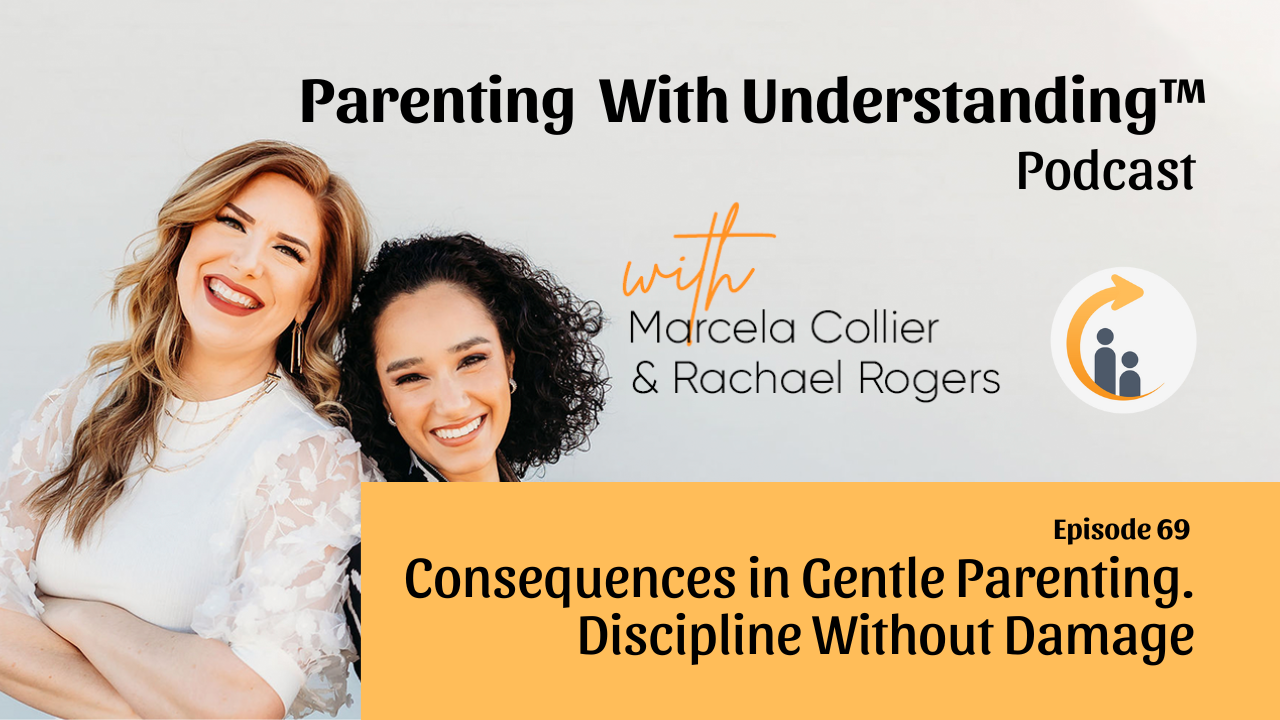Epi #69. Consequences in Gentle Parenting. Discipline Without Damage
Jul 18, 2023
Are you left wondering how to respond every time your child acts out or disobeys a rule?
You're not alone.
Many parents struggle to find the balance between discipline and empathy, particularly when traditional discipline methods make children feel shameful.
Gentle parenting is not permissive, and we do apply consequences. The difference is that these consequences are focused on teaching children without shaming them.
Consequences vs Punishment
It's crucial to differentiate between punishments and consequences in discipline. Punishments are penalties we, as parents, impose on our children for undesirable behavior.
They are often disconnected from the behavior itself, and their primary function is to inflict discomfort or distress.
Consequences, on the other hand, are the natural or logical outcomes of a child's actions.
They are inherently tied to the behavior, making them an effective learning tool for your child.
For instance, if your child refuses to do their homework, a punishment might involve taking away their favorite toy.
A consequence, however, would be them not understanding the lesson at school the next day because they didn't complete their assignment or having to complete their homework the next day on top of their daily assignment.
The consequence directly relates to the action, thereby serving as an impactful learning experience.
Implementing Consequences Without Damage:
So, how do we integrate this type of discipline effectively and gently into our parenting approach? Here are some key strategies:
Educate, Don't Inflict Distress
The aim of consequences without damage are to educate, not to inflict distress.
If the natural consequence of an action isn't harmful and presents a learning opportunity, let it happen.
For example, if your child refuses to wear a coat when it's cold, the natural consequence is that they will feel cold. This might be enough for them to remember to go back in the house to grab their coat before getting in the car.
Logical Consequences
In situations where natural consequences might be harmful (like forgetting to wear a helmet while biking), we can introduce logical consequences.
These are consequences we create to help mirror what the natural consequence would be.
In this case, a logical consequence might be that they can't ride their bike until they put their helmet on.
The consequence directly relates to the behavior, providing a safe environment for your child to learn in.
Communication is Key
Always ensure your child understands the link between their actions and the consequence. This involves communicating openly, honestly, and respectfully about what the consequence will be for a particular behavior and why.
Consequences are powerful tools in the gentle parenting toolkit. It fosters understanding, responsibility, and growth, all while respecting our child's autonomy and emotional well-being.
We'll delve deeper into specific examples and techniques to employ natural and logical consequences in the E-Book Discipline Without Damage, which is our ultimate resource full of examples, scripts and tools for effective gentle discipline for children 1 to 19 years of age.



